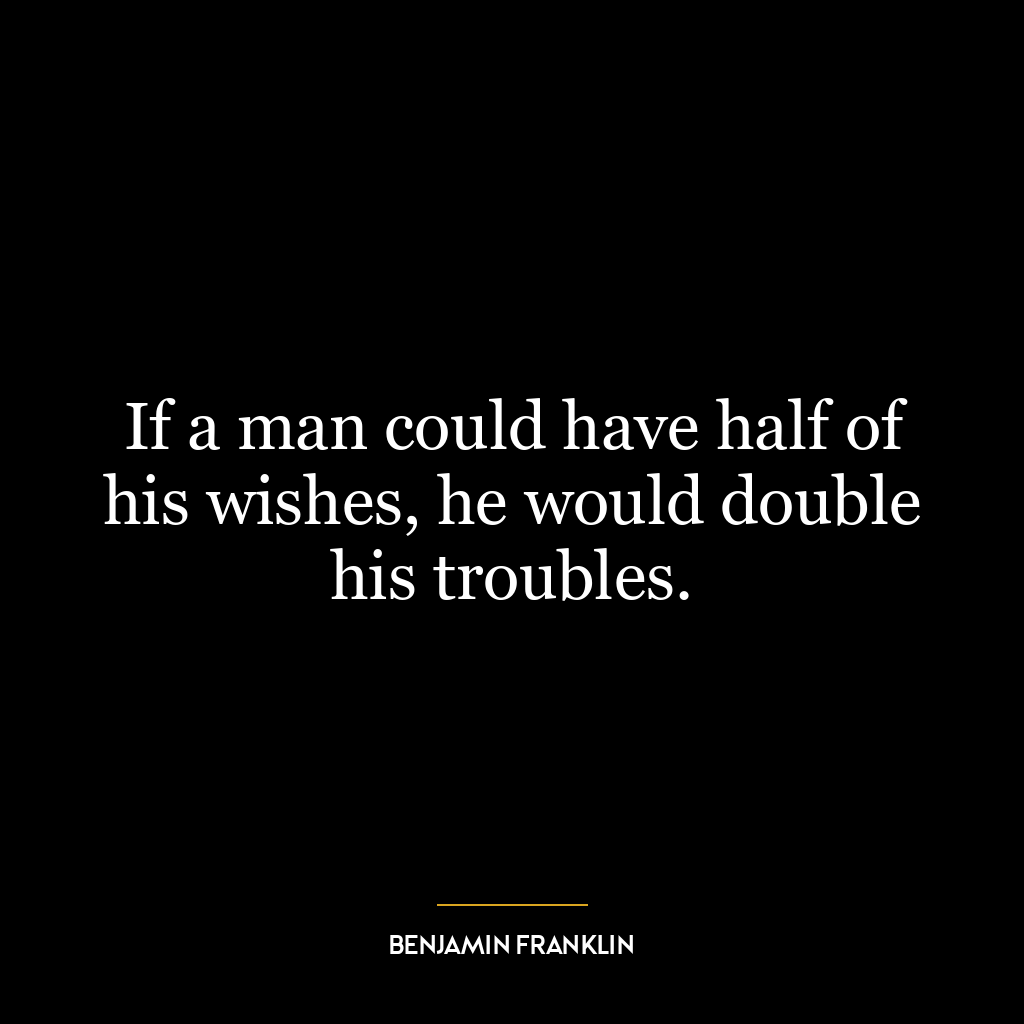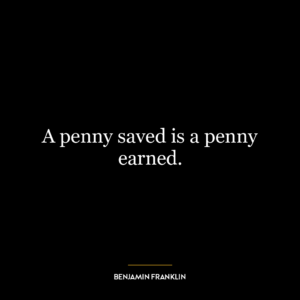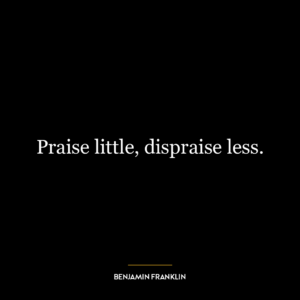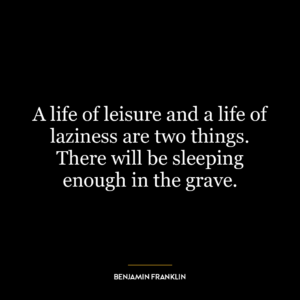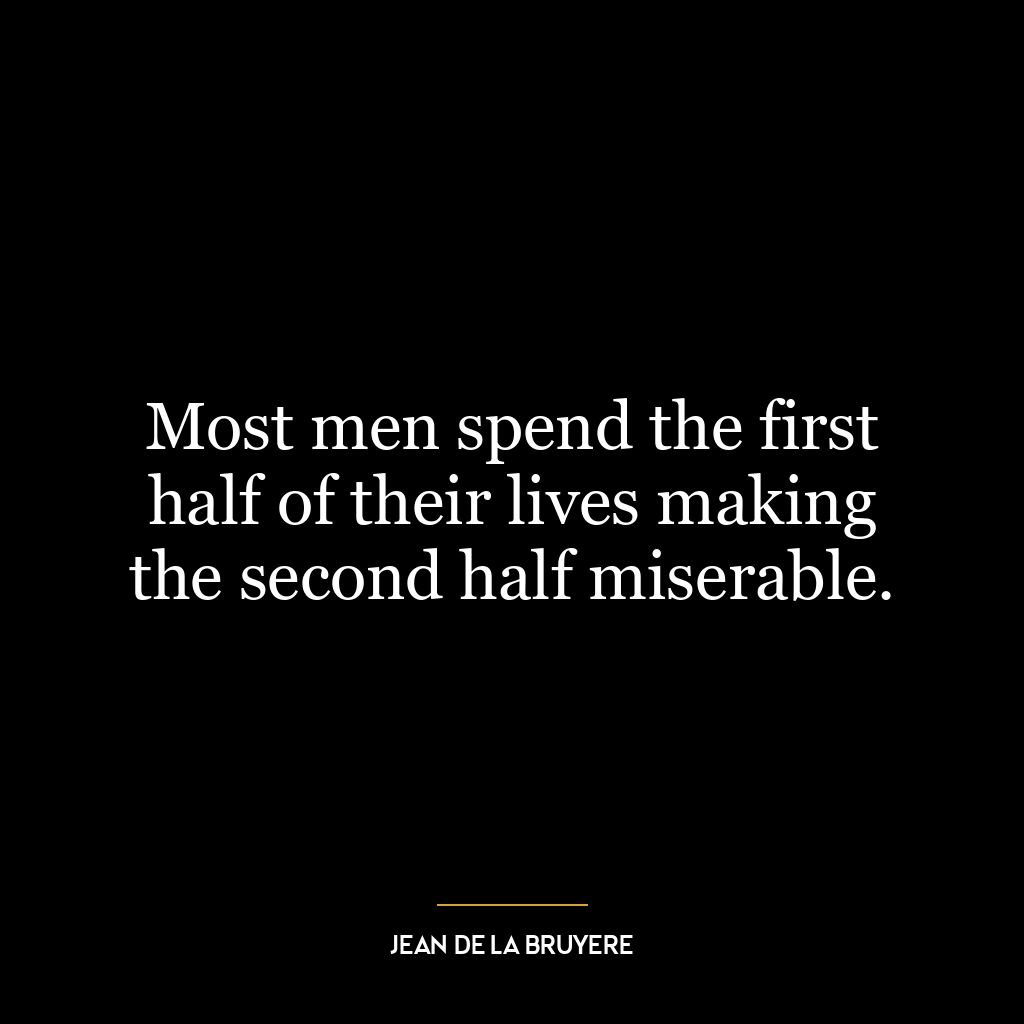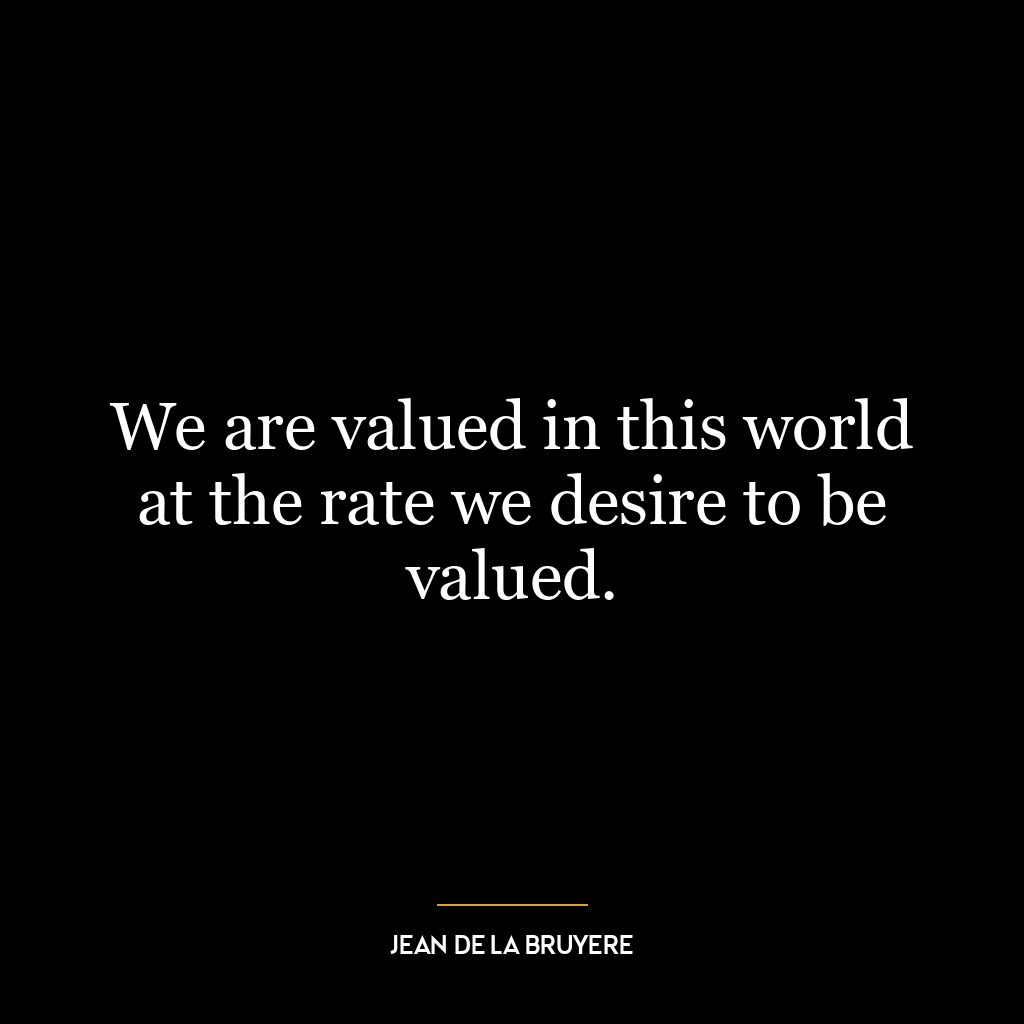If a man could have half of his wishes, he would double his troubles.
This quote suggests that human desires, while seemingly attractive, often lead to complications and problems. The underlying idea is that what we wish for may not necessarily bring us happiness or satisfaction, and could instead result in unforeseen troubles. This is because our wishes are often fueled by greed, envy, or shortsightedness, and fulfilling these wishes might bring temporary pleasure but long-term pain.
For instance, someone might wish for immense wealth, thinking it will solve all their problems. But with wealth could come stress, isolation, and a host of other issues. Another person might wish for fame, only to find that it invades their privacy and freedom. Therefore, the quote is a reminder to be careful what we wish for, as our desires might be misguided and their fulfillment might not lead to happiness.
This quote is particularly relevant in today’s world, where consumerism and the desire for instant gratification are prevalent. We are constantly bombarded with messages that encourage us to want more – more money, more possessions, more success. Social media platforms, for instance, often create a false impression of perfect lives, leading us to wish for things that might not actually contribute to our well-being.
In terms of personal development, this quote can be seen as a call for introspection and self-awareness. It encourages us to question our desires and to consider whether they are genuinely in our best interests. Instead of mindlessly chasing after what we think we want, we should strive to understand our true needs and to pursue goals that will bring us long-term fulfillment and happiness. It also emphasizes the importance of gratitude for what we already have, rather than always wanting more.
Therefore, it’s not about suppressing our desires, but about cultivating the wisdom to distinguish between superficial wants and deeper needs. This understanding can lead to more meaningful, satisfying lives.

